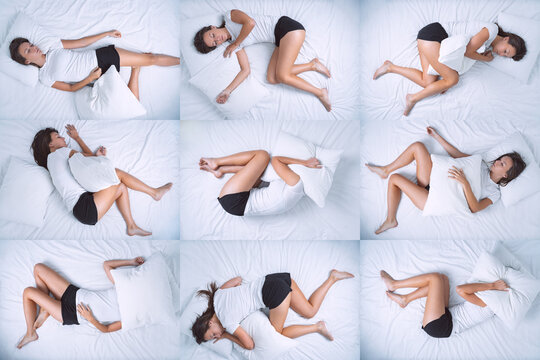
You’ve probably heard that good sleep is vital for healthy eyes — but few people realize that how you sleep can also make a difference.
At Evolutionary Eye Care, we often discuss lifestyle habits that quietly affect long-term vision health. One of the most overlooked? Your sleep position.
From increasing eye pressure to worsening dryness and puffiness, your nighttime posture can influence how your eyes feel — and even how well they function.
How Sleep Position Affects Eye Pressure
When you sleep face-down or on one side for long periods, gravity and body pressure can restrict natural eye fluid drainage.
This can temporarily increase intraocular pressure (IOP) — the same pressure that contributes to glaucoma, a leading cause of preventable vision loss.
Studies show that people who sleep on one side often have slightly higher eye pressure in the lower-facing eye, which could explain why glaucoma sometimes progresses faster in one eye than the other.
💡 Tip: Try sleeping on your back or alternating sides to reduce long-term pressure imbalance.
Side Sleeping and Dry Eyes
If you’re a side sleeper, you may have noticed one eye feeling drier or more irritated in the morning.
That’s because your pillow or bedsheets can partially block airflow and disrupt the tear film on the exposed eye.
For people with dry eye syndrome, this can make morning discomfort worse.
💡 Tip: Choose silk or hypoallergenic pillowcases, and apply lubricating drops before bed for overnight comfort.
Face-Down Sleeping and Corneal Stress
Sleeping face-down, especially on firm pillows or massage tables, can cause gentle but sustained pressure on the cornea.
This may lead to:
Temporary blurred vision upon waking
Corneal shape distortion (especially after surgery like LASIK)
Worsened swelling for those with eye allergies or blepharitis
💡 Tip: If you must sleep face-down (for medical reasons or after certain eye surgeries), use a face cradle pillow that leaves space for your eyes.
Swelling and Puffy Eyes in the Morning
Your sleep position can also affect fluid circulation.
Sleeping flat or face-down can cause fluid to accumulate around the eyes, leading to puffiness and morning swelling.
This is harmless for most, but for individuals with thyroid eye disease or sinus congestion, it can exacerbate discomfort or pressure.
💡 Tip: Sleep with your head slightly elevated using an extra pillow or adjustable base.
Special Considerations for Glaucoma Patients
For patients managing glaucoma, nighttime is when eye pressure naturally peaks — and sleeping posture can amplify this effect.
At Evolutionary Eye Care, we recommend that glaucoma patients:
Avoid prolonged face-down or side-sleeping on the same side
Maintain a consistent sleep schedule to regulate pressure rhythms
Use prescribed medications or devices that stabilize nighttime IOP
Monitoring IOP patterns through 24-hour pressure tracking or home-based sensors is an emerging tool we’re excited to integrate in the near future.
How to Protect Your Eyes While You Sleep
Here are Evolutionary Eye Care’s top recommendations:
✅ Sleep on your back whenever possible.
✅ Keep your eyelids clean and hydrated before bed.
✅ Use a humidifier to maintain moisture in your room.
✅ Avoid sleeping directly under air vents or fans.
✅ Get regular eye exams if you notice morning dryness, redness, or blurred vision.
When to See an Optometrist
If you wake up frequently with:
Eye pain or pressure
Morning redness or dryness
Vision that takes time to clear
…it’s worth discussing with your optometrist.
At Evolutionary Eye Care, we can assess whether sleep-related pressure, dryness, or inflammation is contributing to your symptoms — and tailor a plan to protect your eyes long-term.
Book Your Sleep & Vision Wellness Exam Today
Your nightly habits might be saying more about your eye health than you realize.
Whether you’re managing dryness, glaucoma, or just want to preserve long-term vision, Evolutionary Eye Care can help you optimize your sleep and your sight.









